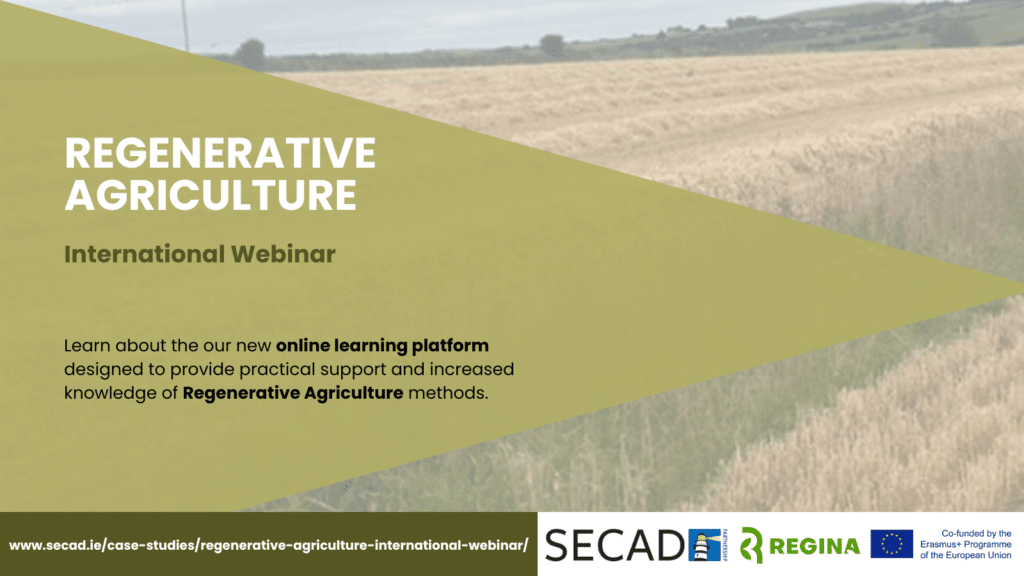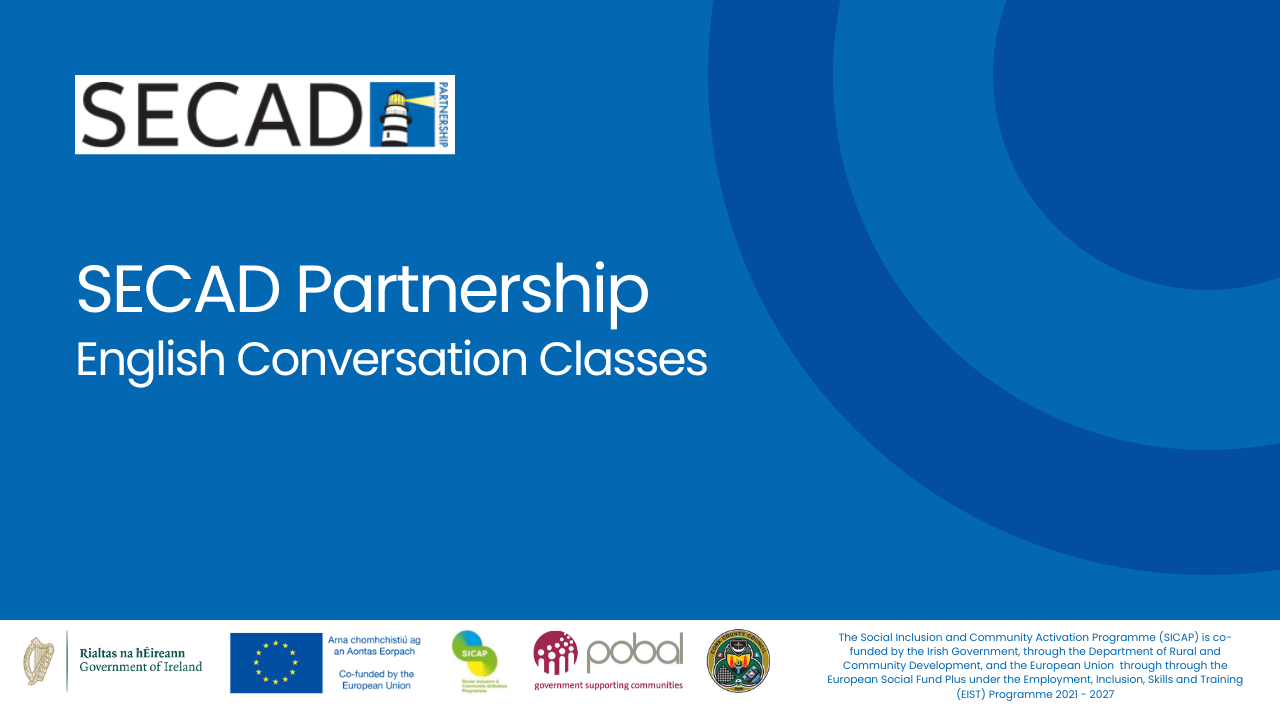Delivered by European project partners and academic experts in the field of Regenerative Agriculture, this webinar showcased a new online learning platform and best practice library which have been developed as part of the REGINA Erasmus+ project.
Aimed at third level institutions, teachers, students, researchers, practitioners, or anyone interested in sustainable agriculture, the webinar provided a greater understanding of the learning materials, tools and resources designed to promote and support principles and practices of Regenerative Agriculture. An introduction was provided to the four free and accessible online modules which focus on regenerative farming practices that enhance soil health, increase biodiversity, and promote ecosystem resilience.
We were delighted to be joined in the webinar by:
- Honvári Patrícia, PhD – Associate Professor of Economics and Environmental Economics, Budapest Business School, Hungary
- Dr. Rok Mihelic – Biotechnical Faculty, University of Ljubljana, Slovenia
- Dr. Marco Napoli – Department of Agriculture, Food, Environment and Forestry (DAGRI), University of Florence, Italy
- Antonio Pescatore – Department of Agriculture, Food, Environment and Forestry (DAGRI), University of Florence, Italy
Our speakers gave an introduction and overview of the project, the online learning resources available and the four REGINA modules as follows:
Module 1: Regenerative Agriculture Orientation
Module 1 is designed to provide students with a comprehensive understanding of the principles and practices of Regenerative Agriculture, as well as the benefits and challenges of implementing these practices, i.e. an introduction to the historical and ecological context of regenerative agriculture, including the role of traditional and indigenous agricultural practices in maintaining healthy ecosystems.
Module 2: Agronomic aspects
Module 2 is designed to provide a detailed understanding of the agronomic practices and techniques involved in implementing regenerative agriculture on farms, i.e. the agronomic practices and techniques involved in implementing regenerative agriculture on farms, and how these practices contribute to improving soil health, enhancing biodiversity, and increasing productivity and profitability.
Module 3: Sustainability concepts
Module 3 explores the principles and practices of regenerative agriculture from a sustainability perspective, i.e. an approach to farming that seeks to improve soil health, increase biodiversity, and enhance ecosystem resilience.
Module 4: Insights on specific crops & livestock
Module 4 provides students with an in-depth understanding of specific crops and livestock in regenerative agriculture, i.e. the unique characteristics and needs of different plants and animals and how they can be integrated into a Regenerative Agriculture system.

A recording of the webinar can be accessed here.
What is the REGINA project?
The REGINA Project ‘Regenerative Agriculture – An innovative approach towards mitigation of climate change through multi-tier learning’ is an Erasmus+ Cooperation partnership project which commenced in November 2021. The project involves a total of eight project partners from five European countries including Greece, Hungary, Slovenia, Italy and Ireland.
With a shared understanding of the substantial benefits that Regenerative Agriculture practices can offer in terms of the ability to address environmental concerns and the fight against climate change, the overall aim of the project is to create learning material, in the form of courses that can be taught to agronomy students (and related fields of study) at university level, to vocational secondary education students of agriculture (and related fields) and to farmers and farmers’ advisors.
Through research and knowledge exchange, the project aims to explore the practice of Regenerative Agriculture in each of our respective countries and to gain a greater understanding of the challenges to be overcome in order to support the adoption of these farming methods.
With partners from academia, education, lifelong learning and rural development sectors, the research project highlighted shared challenges and identified common knowledge gaps. These learnings have been utilised to develop a new, university-level module in Regenerative Agriculture and to create an online Regenerative Agriculture learning platform for practitioners and adult learners.
Further details on the project and its partners can be found on the project website https://regina-ra.eu/home.
More information on SECAD Partnership’s work undertaken as part of the project can be found here https://www.secad.ie/what-we-do/regenerative-agriculture-in-ireland/.
About SECAD Partnership
Cork-based Local Development Company, SECAD Partnership CLG (www.secad.ie) is the Irish partner in the REGINA project. SECAD has successfully delivered rural development and social inclusion programmes in the South and East Cork area since 1995, on behalf of the European Union and the Irish Government through the National Development Plan. Through social, economic and environmental programmes, we provide support and assistance to individuals, businesses and community groups who are active at a local level. We provide general information, capital grant aid, technical assistance, mentoring, training and development initiatives as well as other support and guidance. SECAD Partnership CLG aims to motivate and empower rural communities to create a more vibrant, sustainable and inclusive society.
This project is funded through the European Erasmus+ Project. For more information:





